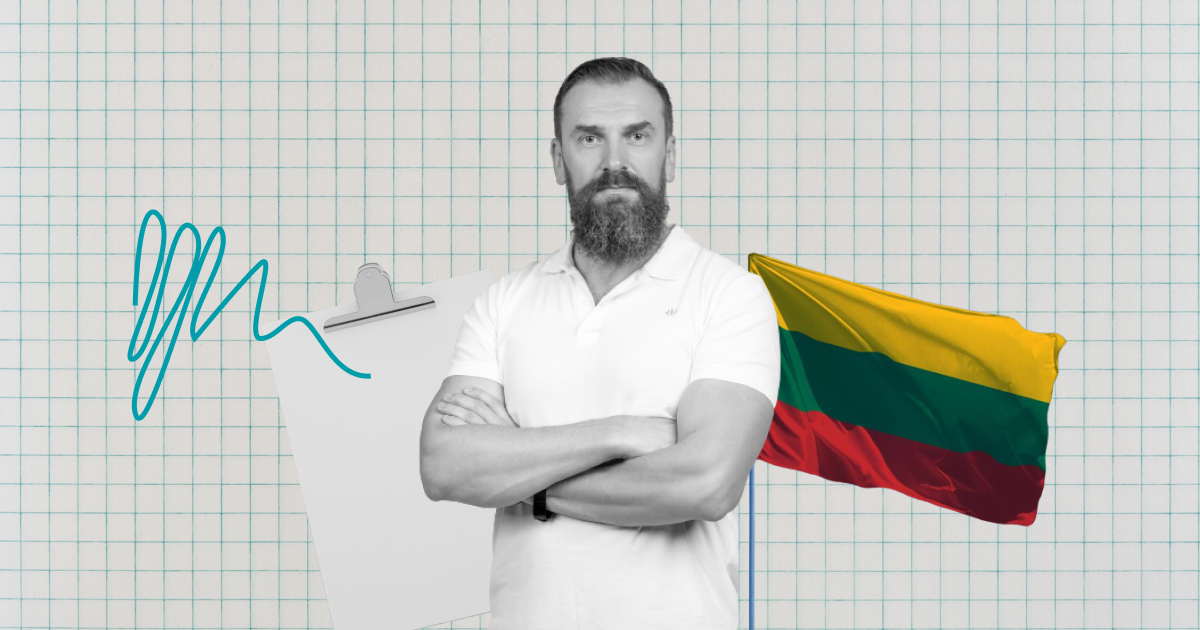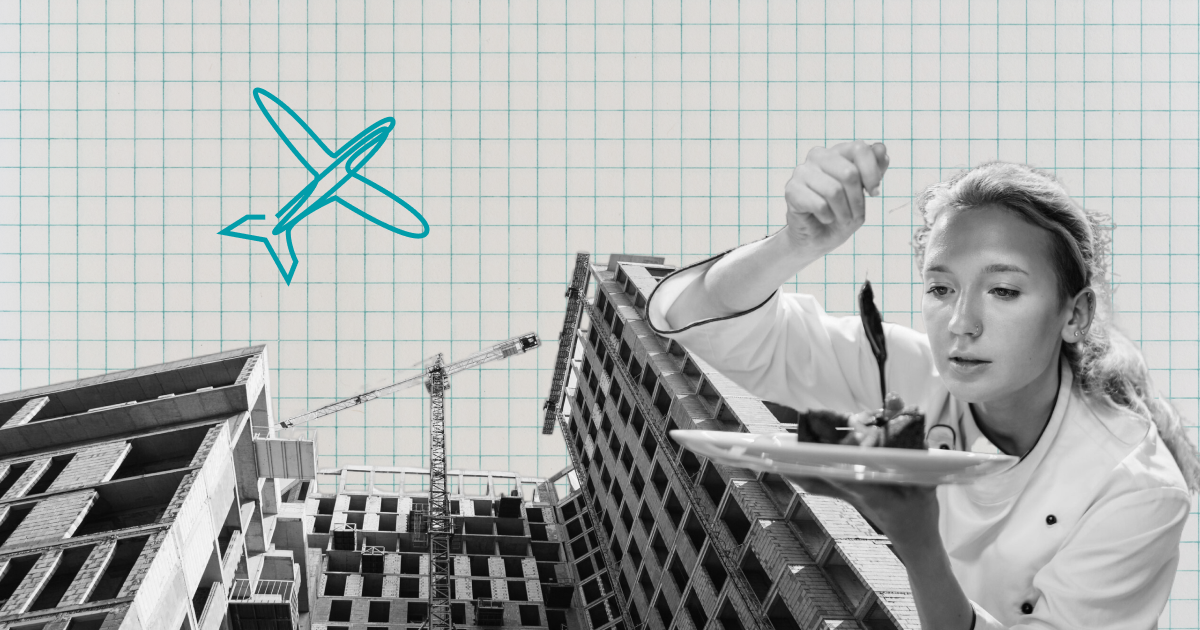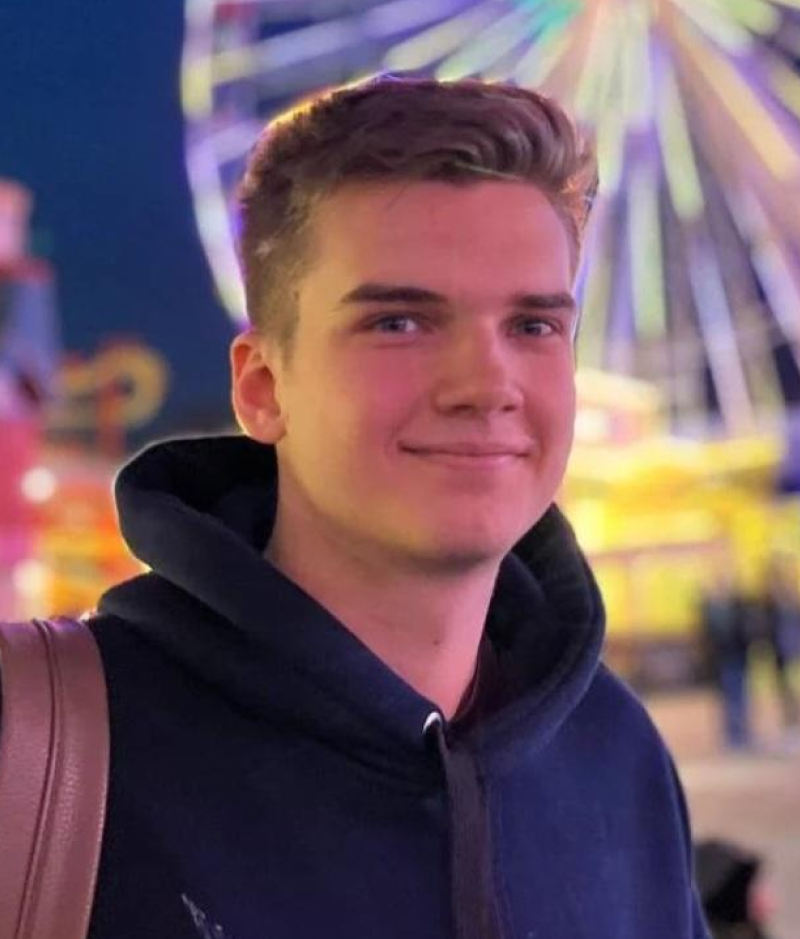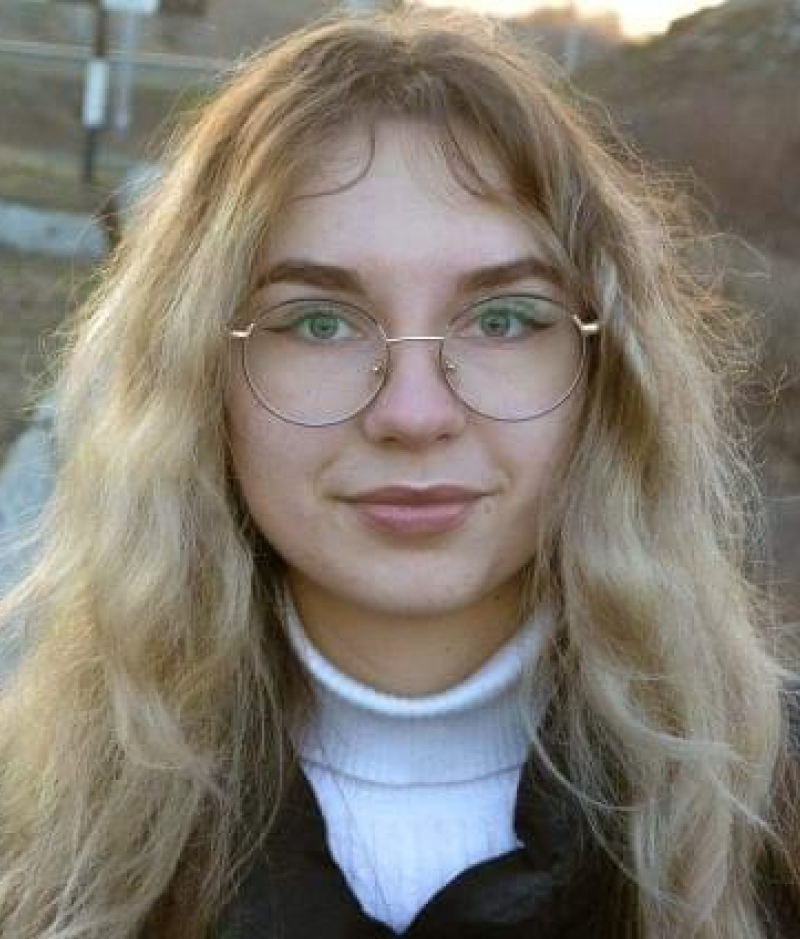Study conditions for Ukrainians abroad during the war

"The Lithuanian government has decided to cancel free tuition for Ukrainian students at Kyiv's request," Lithuanian media outlet Lrt reported on July 15, 2024. The decision was allegedly based on Ukraine's desire to stop the brain drain abroad. This information, which later turned out to be fake, was picked up by most Ukrainian media.
It is not yet clear who is trying to discredit the support of partner countries, but we can see the actualisation of the narrative about the outflow of bright young people abroad. Before, Ukraine was blamed for this. Now, it is possible to manipulate the desire of other countries to attract Ukrainian students to their countries.
Svidomi discusses how Ukrainian students live abroad and whether partner countries have a hidden intention to keep promising Ukrainian youth.
Kyiv's reaction to changes in support conditions for Ukrainians in Lithuania
A day after information about the cancellation of free education for Ukrainians in Lithuania spread in the Ukrainian information space, Ukraine's Minister of Education and Science, Oksen Lisovyi, made a statement. He emphasised Lithuania's continued support for Ukrainian students and thanked the partner country for this "unwavering decision."
These points were reinforced by an online meeting with Lithuania's Minister of Education, Science, and Sport, Radvilė Morkūnaitė-Mikulėnienė, Deputy Minister Justas Nugaras, and the Secretary of State of the Ministry, Julius Lukošius. According to Lisovyi, the conversation's outcome confirmed Lithuania's intentions to continue supporting Ukrainian students.

The Ministry of Foreign Affairs of Ukraine also refuted the information broadcast by Lithuanian media in response to an inquiry from Member of Parliament Oleksii Honcharenko on July 24. The ministry denied that the Ukrainian side had requested the cancellation of free education for its students abroad.
In an official response, the ministry reported that the Ukrainian Embassy in Lithuania had contacted the Lithuanian Ministry of Education, Science, and Sport to inquire who had provided the media with this information. The question remained unanswered.
What are the conditions for Ukrainians to continue their education in Lithuania?
The Ministry of Education, Science and Sport of Lithuania has allocated €11 million to support Ukrainian students.
"We are committed to supporting Ukraine. Ukrainian pupils and students who are already in Lithuania will have unchanged support conditions," says Lithuania's Minister of Education, Science, and Sport, Radvilė Morkūnaitė-Mikulėnienė.
Odarka is one of the Ukrainian students who have benefited from Lithuanian support. She left for Lithuania a month after the full-scale invasion began. Her studies in Ukraine were at risk of being disrupted, so she sought a place to continue them. The Lithuanian university provided a clear action plan and was ready to integrate her into a group and provide housing.
It is worth mentioning that Lithuania consistently supports Ukrainian students and focuses on a loyalty program. This program targets Ukrainians who are already in the country. They either continue their studies at the universities they enrolled in during 2022 and 2023 or are graduating from Lithuanian schools and preparing for admission.

"Lithuanians have always shown exceptional empathy and understanding of the plight of Ukrainians. They are genuinely pleased to see active students from Ukraine, who often exceed their expectations even compared to local students. However, the conditions for admission and financial support for new students from Ukraine are becoming less significant each year,"
says Odarka.
Currently, the conditions for Ukrainians to obtain higher education in Lithuania are as follows:
- For Ukrainians already studying in Lithuanian higher education institutions, no changes are anticipated — the conditions of study and the free basis will remain unchanged until they complete their studies.
- For Ukrainians who have graduated from Lithuanian schools, the admission quotas have been cancelled for 2024. They are eligible to compete for places alongside Lithuanians on a general basis. However, this year, Ukrainians are still not required to take the Lithuanian language exam.
- For Ukrainians who wish to enrol in Lithuanian higher education institutions but have not studied in Lithuanian schools, scholarships for international students can be beneficial, covering tuition and sometimes living expenses.
As of July 24, 2024, about 1,100 Ukrainians are studying in Lithuanian higher education institutions. For comparison, this figure represents 1.07% of the 102,400 students who studied in Lithuanian higher education institutions in the 2022-2023 academic year.
Ukrainian students prefer majors such as international business, information systems and cybersecurity, global marketing, software systems, accounting, and finance. Theoretically, Ukrainians will have employment opportunities as the country faces an ageing population issue. Obtaining higher education, specifically at Lithuanian universities, can change the current situation with labour migration.
"Foreigners usually fill gaps in professions with missing qualifications, helping to solve labour market imbalance problems," explains Jurgita Zemblite, Head of the Monitoring and Analysis Department of the Employment Service in Lithuania.
However, a foreigner must obtain a special permit to work in Lithuania. Currently, this procedure is somewhat simplified for Ukrainians due to the Russian-Ukrainian war, and Lithuania has become a leader in Europe in employing Ukrainian refugees.
Despite this, the Lithuanian government is determined to protect its citizens from unemployment, which may arise due to the influx of emigrants. Thus, the Seimas has approved an annual quota for workers from third countries, including Ukraine.
Additionally, members of the Seimas are cautious about immigrants from the former Soviet Union countries. Lithuanians express concern if they do not want to integrate into society and try to bring their own culture.
"Is the migration coming from CIS countries not bringing us back to the post-Soviet space dominated by Russia?" says Seimas Deputy Raimondas Lopata.
As of July 1, 2024, Ukrainians primarily work in enterprises, construction, warehouses, and the accommodation and food service sectors. However, this statistic does not apply to young people determined to work in their field. Some of them plan to return to Ukraine. For example, Odarka plans to return to Kyiv after gaining as much as possible from European education.

"My communication circle would allow me to attract a sufficient number of people for the internal transformation of existing services and processes in the country. Moreover, the borrowed experience from the 'West' will enable us to integrate into European society as quickly as possible. After all, someone has to do it," shares Odarka.
Ukrainian students in economically developed Germany
Germany expected a larger influx of Ukrainian students after the full-scale invasion of Ukraine. However, only a third of the projected 100,000 enrolled in the country’s higher education institutions. Moreover, only about 10,000 had Ukrainian citizenship, with the rest being foreigners previously studying in Ukraine.
As of 2024, 9,069 Ukrainian students are studying in Germany, including those who enrolled before February 24, 2022.
German experts identified two main reasons for the relatively small number of applicants compared to their expectations. The first reason is that men over 18 have had restrictions on crossing the border since the start of the full-scale invasion. The second reason is that some Ukrainians, physically in Germany, continue online studies at Ukrainian higher education institutions.
Another important reason is the language barrier. German is not an easy language to learn quickly at the level required for university studies. In the state of Baden-Württemberg, for example, one-fifth of Ukrainian citizens chose to study music, which does not require perfect German language skills.
Oleksii Fysiuk also decided not to enrol in a German university. Despite intensively studying German from the first grade, he understood it was not enough for admission and quality education. Therefore, Oleksii decided to undergo Ausbildung.
If drawing parallels between Ukrainian educational institutions and German ones, Ausbildung is a private polytechnic college. Education in a specialised "school" (Schulische Ausbildung) or at an enterprise lasts up to three and a half years. The company pays students, who actually become their employees, a salary.

"The subjects are divided into 70% related to the profession and 30% for general development. I spend four weeks at the company for practical training, two weeks in theoretical classes, and once every two months a week in IHK. This was mandatory training that was not related to my speciality,"
explains Oleksii Fysiuk.
The education system uses a 20-point scale. Points can be earned for collaboration with others, speed of task completion, etc. Earned points do not go on the certificate but serve as recommendations for the employer.
Ukrainian applicants have access to a sort of "loyalty program" in Germany. They have the opportunity to obtain a residence permit (Aufenthaltstitel), which gives them the same priority as Germans when applying.
"It was not like college, and it was not like university. I had the privileges of a school student. And there was a huge school with many classes, and even in this school, with 4,000 students (well, not children, one of my classmates was 36 years old), I was the only one from Ukraine," shares Oleksii.
Despite the East German accent, Oleksii had no problems understanding the language of teachers and fellow students. However, he could not find common ground with most of them. The influence of the Soviet Union, which dominated this part of this country, is still felt in the region. According to Oleksii, many locals know Russian, consume Russian content, and are loyal to the Russian Federation.
Since Oleksii was the only non-local in the group, the attitude towards him was not very friendly. This was reflected in the tasks he was given during practical training. While German students did basic tasks for a month and a half, Oleksii was not given more challenging tasks for a year.
"If there was no basic task, instead of giving me a higher-level task to teach me... The factory was approximately 100 by 100 meters. More precisely, that was just one floor. There were two floors in total, including the basement. And it all had to be clean, so I always had the job of a cleaner," recalls Oleksii.
Feeling uncomfortable in such an environment, he decided to finish his studies and return to Ukraine, where he would be needed as an electrical engineer. To ensure his professional development, Oleksii sought out mentors. However, one of the tasks found by a mentor was to move iron cabinets from one room to another. After several unsuccessful attempts, he decided not to waste time and returned to Ukraine. Now, Oleksii is enrolling in the first year.
The situation with the number of Ukrainian students in German higher education institutions may change when children studying in German schools graduate. For them, education in German higher education institutions will be free. According to research by the German Center for Higher Education, 45% of international students remain in the country after obtaining higher education.
Free education in Slovakia attracts Ukrainians to Europe
Education at public universities in Slovakia is free for citizens and foreigners, provided the language of instruction is Slovak. These conditions present a real opportunity for anyone dreaming of entering and staying in the EU. However, there are some nuances.
For Ukrainians and other foreign applicants, state universities require a certificate of language proficiency from an accredited Slovak institution. This certificate can only be obtained through courses approved by the Slovak Ministry of Education, which are fee-based. After completing these courses, young people have the opportunity to enter some Slovak public universities without entrance exams.

In this way, future students can pay for their education by integrating into another culture at an initial level. In Slovakia, higher education is also available in English, but such programs are fee-based. There should be no issues with documents, such as Ukrainian school certificates, as there has been an agreement between Slovakia and Ukraine on the recognition of educational documents since 2014.
Opportunities for international students don’t end there. They can obtain a residence permit with the right to official employment.
These favourable conditions are due to the fact that many Slovak students choose to pursue higher education abroad and later build their careers there. One of the principles of the Slovak Republic's Migration Policy until 2025 is to "ensure conditions for the successful integration of foreigners into Slovak society."
However, this system of attracting foreigners to contribute to the development of Slovakia's economy still has gaps at the stage of transitioning university graduates to the labour market. Higher education institutions are not designed to prepare the workforce the country's economy needs. However, young people continue to enrol, and some see Slovakia as a stepping stone to other European countries. As of October 31, 2023, 10,466 Ukrainian students were obtaining higher education in Slovakia.
Among them is Alina Shevchuk, a Ukrainian student studying translation at a Slovak university for two years. Studying abroad was her parents' recommendation, which she followed. She chose Slovakia because of the free education.
In Ukraine, agencies help with admission abroad for a fee by checking documents, explaining stages, and assisting with getting a dormitory spot. Alina used one of these agencies for her admission.
Since Alina chose a translation major, her education is conducted in three languages: Slovak, as the main language for free education, and Ukrainian and English, according to her chosen translation specialisation. According to Alina, there are many Ukrainians at her university. The city of Prešov is close to the Ukrainian border, partially explaining why most students (70%, according to Alina) at the Slovak educational institution are Ukrainians.

"Honestly, looking back, I would have chosen to study in Ukraine. The difference in the educational process is that in Ukraine, as far as I know, there are many classes at universities, mostly in the morning and back-to-back, which means more workload. In Slovakia, there can be 2-3 classes a day — one at 9 am, another at 6 pm. There is an illusion of little university time, but you have to spend more time independently studying the material,"
says Alina.
Alina's adaptation process lasted five months. The most challenging part for her was realising that she was not in Ukraine, which was emotionally challenging. Other Ukrainian students she befriended helped her adapt.
Alina says she is ready to return to Ukraine even before the victory in the Russian-Ukrainian war to help bring it closer. She does not want to be a migrant assisting another country but plans to develop her own.
"What would inspire me (to return home — ed.) is the belief that I will be part of the people contributing to making Ukraine a modern, independent country on par with European ones. So that in the future, people will come to study in Ukraine as they now go abroad from Ukraine," says Alina.
Ukrainian youth's plans — whether to return to Ukraine or not — may change during their studies abroad. Ukraine still has a chance to get back its "young brains," so it is necessary to implement relevant campaigns. After all, some Ukrainian students who left due to the full-scale invasion will soon graduate. They will be looking for jobs and will choose the country that allows them to realise their potential.


